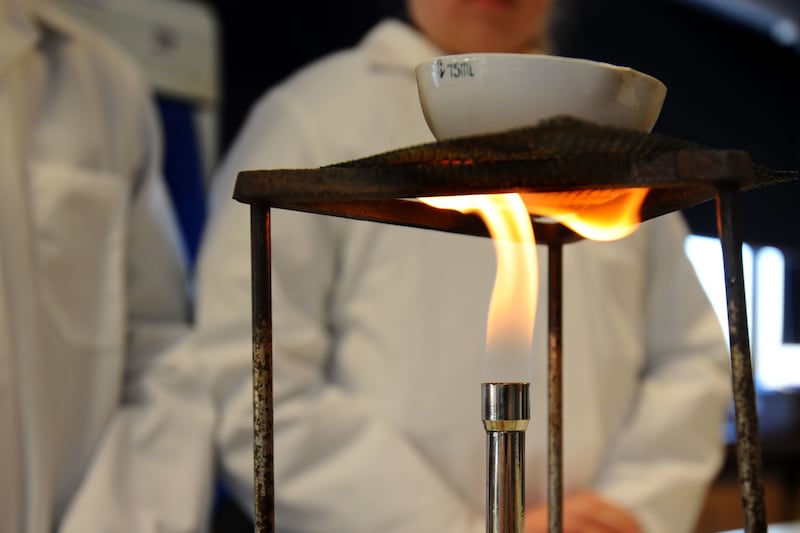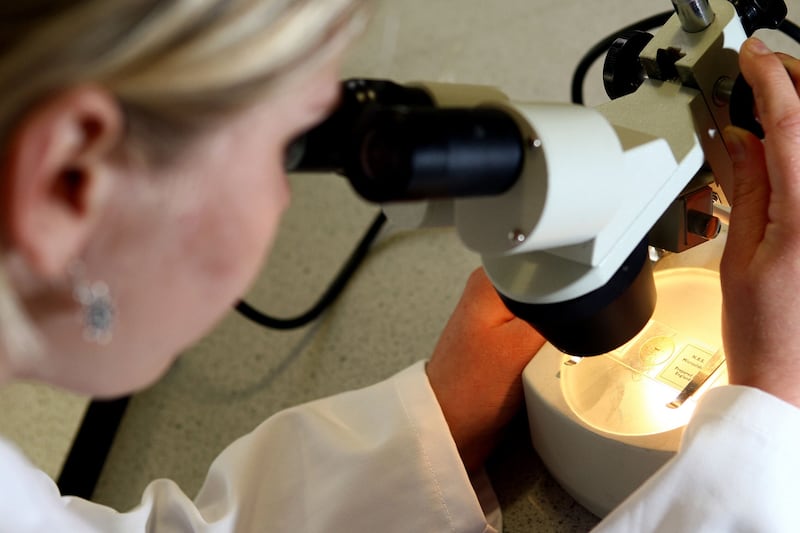The Prince of Wales has called for “urgent” action to combat antimicrobial resistance (AMR) which he said risked “jeopardising the well-being” of future generations.
AMR occurs when microbes that cause infections develop resistance to treatments such as antibiotics and become difficult or impossible to treat, increasing the risk of disease spread, severe illness, disability and death.
Speaking at an event celebrating efforts to tackle AMR at the Royal Society on Thursday, William called for international and cross-sector co-operation regarding the issue.
Both the King and the prince’s wife, the Princess of Wales, have undergone treatment for cancer in recent months which can weaken the immune system and leave patients prone to infection.

William smiled as he used antibacterial hand gel from a dispenser by the entrance before shaking hands with attendees upon his arrival at the event in central London.
Addressing the conference, hosted jointly by the Government and the Royal Society, William said: “There is an urgent need for new measures to access new and existing vaccines, diagnostics and medicines.
“We stand at a critical juncture, where the interconnections between drug resistance, climate change and environmental degradation cannot be ignored.
“Rivers are polluted with antibiotics and oceans are filled with micro-plastics containing resistant bacteria.
“Meanwhile, deforestation is playing havoc with ecosystems, facilitating the emergence of new infectious diseases.
“Unless we act now and together, the ripple effects of drug resistance will be felt across generations, jeopardising the well-being of our children and our grandchildren.”
The prince added that he was “hopeful” regarding the future of AMR because of the growing expertise on the topic and new technologies required to better prevent, detect and respond to the issue.

The World Health Organisation has described AMR as “one of the top global public health and development threats”, saying bacterial AMR was directly responsible for 1.27 million global deaths in 2019 and contributed to 4.95 million deaths.
Following his speech, the prince met three speakers who shared their experiences of AMR, including Felix Liauw, a paediatrician from Indonesia whose baby son was diagnosed with a drug resistant infection as well as a genetic condition that led to repeated infections two weeks before he died in 2019.
William thanked the speakers for sharing their experiences and asked them for their thoughts on progress on AMR in their home countries of Indonesia, Lebanon and Nigeria and what more could be done to help highlight the issue.
Dame Sally Davies, the UK special envoy on AMR, said having the prince’s support was “massively” important.

She said: “The people listen to him.
“He’s got priorities, mental health, climate change, but he’s taking the time because it is so important to have a focus on this.”
Dame Sally said she had spoken to William about AMR during her time as chief medical officer and that the prince had pledged his support for the issue.
She added: “He always said ‘When you need me, call’, and there we are!”
Last July, the prince became patron of the appeal to establish The Fleming Initiative, a collaborative approach led by Imperial College Healthcare NHS Trust and Imperial College London to tackle AMR around the world.
The Fleming Initiative is dedicated to combating antimicrobial resistance, and is at the forefront of research and innovation.
Proud to be Patron of the appeal for its creation 👇 https://t.co/zAsQY5qjOU
— The Prince and Princess of Wales (@KensingtonRoyal) May 16, 2024
A package of up to £85 million to support the international community in tackling the threat of AMR was announced by the UK Government during the event.
This would include up to £50 million to partner with countries in Africa to improve access to medication, up to £25 million to work with countries and territories in the Caribbean to strengthen surveillance systems to accurately monitor AMR threats through regional partners such as the Caribbean Public Health Agency and the Pan American Health Organisation, and up to £10 million over the next five years to help establish a global independent scientific panel.
Health minister Andrew Stephenson said: “Antimicrobial resistance could render our most vital medicines useless – it is a threat the world must take extremely seriously.
“This package of up to £85 million, builds on the world-leading work the UK Government is already doing to support low and middle-income countries to monitor, research and tackle this disease.”
Foreign Secretary Lord David Cameron said such resistance was a global emergency “posing a vast threat to our health, our development and our security”.








